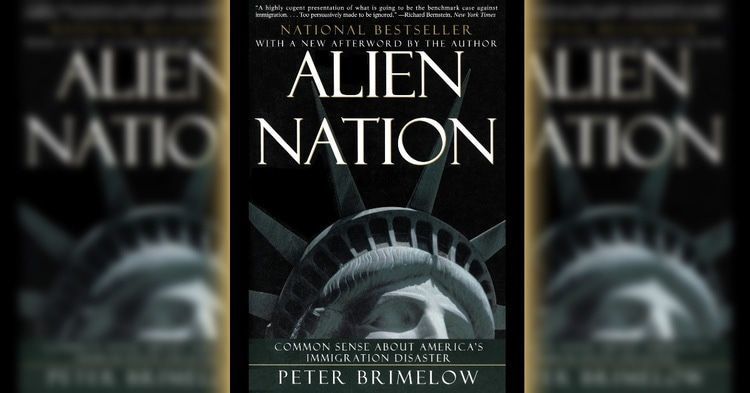
Alien Nation Review: The Freeman: Ideas on Liberty — December 1995
12/01/1995
The Freeman: Ideas on Liberty — December 1995
By Gregory P. Pavlik
Random House • 1995 • 327 pages • $24.00
Peter Brimelow, a journalist and senior editor at Forbes and National Review, has written a stimulating and illuminating discussion of the morass that passes for U.S. immigration policy. Brimelow argues, correctly, that current immigration regulations are part of a wider trend that seeks to change the face of America: that is, the official policy of the federal government is part and parcel of the domestic social engineering efforts that aim at a radical transformation of American society from its European mores, folkways, and culture. Hence, along with the elevation of Third World lifestyles under the leftist rubric of "multiculturalism," current supporters of U.S. immigration laws and so-called open borders, are buttressing anti-Western trends by importing masses of largely unassimilable minorities.
Contemporary libertarian critics of open borders contend that immigration serves to bolster the cost and size of the welfare state, a point that Mr. Brimelow demonstrates conclusively. It is also important to note that the current shape of immigration is politically determined: it actively limits the immigration of skilled Europeans who are more likely to assimilate — as well as add to the economy.
In his book, Mr. Brimelow addresses the economics of immigration directly. He shows that the economic benefits from recent immigration have been almost unnoticeable. In fact, there would have been virtually no loss of economic growth if the current massive immigration wave had never occurred. Brimelow also shows that the quality, in terms of economic potential, of current immigrants is much lower than that of the current American work force, the long-range effects of which have yet to be felt.
Mr. Brimelow also provides a provocative demonstration that free trade can replace immigration in public policy, allowing us to enjoy the benefits of the international division of labor without the social dislocations and destructiveness of mass immigration. As an example, "[t]he Japanese have factories in the Philippines rather than Filipinos in Japan." A similar situation existed in Victorian England. In Britain, the period of "splendid isolation" was characterized by almost unlimited free trade and virtually no immigration. In other words, the international division of labor and the mobility of capital tends to eliminate the need for large-scale immigration.
Alien Nation is a hard-hitting rebuttal of the positions embraced by advocates of open borders in other ways. Supporters of mass immigration obscure the dangers that continued immigration from the Third World presents to America’s European civilization. The basis of this obfuscation rests in part on what has been called the Myth of Economic Man — the fallacious world view that boils all of human society and interaction down to economics and materialism. There are values, ways of life, and aspects of civilization that are extrinsic to economics, and motivations for human behavior that are determined by longstanding cultural practice — and even biological urges — that a purely economic worldview is unable to address, understand, or explain. It’s worth noting that the Myth of Economic Man also underlies classical Marxism, whereas it is decidedly not a part of the free market view of the Austrian School which teaches that human actions are motivated by human values which may be entirely unrelated to material concerns.
Mr. Brimelow also makes an important corollary point: freedom and free markets do not — in fact, cannot — emerge from a vacuum. Freedom is a political category that emerges from a particular history that lends itself to a particular political disposition. If this were not the case, free political institutions would be the hallmark of world politics. Mr. Brimelow’s contention is that the supporters of our current policy, and their apologists in the open borders corner, are in the process of overhauling the character of America. No honest person can believe that this will be without political ramifications.
Mr. Pavlik is Assistant Editor of The Freeman and Director of FEE’s Op-Ed program.
